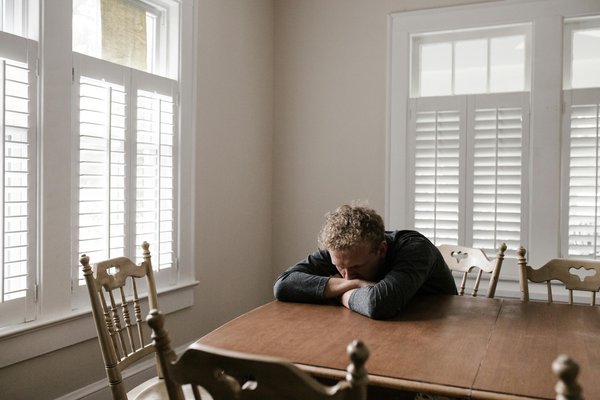Last year, U.S. Surgeon General Vivek Murthy shined light on the loneliness epidemic affecting millions of Americans and the toll that social isolation takes on mental and physical health.
New research from Penn State University now shows that even day-to-day variations in feelings of loneliness are linked to physical symptoms like fatigue, headaches and nausea.
- MORE NEWS
- Honeybees can detect lung cancer by smelling a person's breath, research shows
- Getting gray hairs and wondering why? There often are many factors at play
- The Planetary Health Diet reduces risk of early death and helps the environment; here's what it entails
"A lot of research is focused on loneliness being a binary trait — either you're lonely or you're not. But based on our own anecdotal lives, we know that's not the case," said Dakota Witzel, a postdoctoral researcher at Penn State's Center for Healthy Aging. "Some days are worse than others — even some hours. If we can understand variations in daily loneliness, we can begin to understand how it affects our daily and long-term health."
The Penn State study, published in the journal Health Psychology, was based on responses from daily phone interviews with more than 1,500 people ages 35 to 65. The goal was to gain a better understanding of the impact of loneliness in midlife because most research on the subject has looked at adolescents and seniors.
The researchers found that on days when people felt less lonely, they had fewer and less severe physical symptoms. People who were more stable in their feelings of loneliness also were less likely to have major physical symptoms. But when people reported higher variability in their feelings, they were more likely to report intense physical symptoms.
The researchers conducted interviews with participants for eight consecutive days to monitor their stress levels and moods. Ten years later, each participant went through the interviews again. The researchers used these conversations to gather information about how frequently and consistently participants felt lonely and whether it resulted in physical symptoms.
"These findings suggest that day-to-day dynamics of loneliness may be crucial in understanding and addressing the health effects of loneliness," said David Almeida, the study's senior author and professor of human development and family studies at Penn State. "Increasing feelings of social connection even for one day could result in fewer health symptoms on that day. Such a daily focus offers a manageable and hopeful micro-intervention for individuals living with loneliness."
The surgeon general's report on loneliness largely focused on long-term health effects and factors that increasingly have contributed to isolation, including the rise of social media and a growing number of single-person households. Financial insecurity also was found to be tied to higher levels of loneliness.
The report found that in the long-run, loneliness is linked to a 29% increased risk of heart disease, a 32% increased risk of stroke and a 50% increased risk of developing dementia.
Although loneliness is most often thought to affect seniors, a 2021 poll found that 70% of adults ages 18-24 reported feeling lonely, but just 41% of seniors did. Overall, 58% of people reported feeling lonely.
The Penn State researchers said their study points to the importance of addressing daily and temporary feelings of loneliness to better manage negative health symptoms.
Recommendations from the surgeon general include to stay in touch with family and friends by making small, extra efforts to regularly connect. The report also suggested people consider volunteering, spend time with their neighbors and avoid procrastinating about simple actions like phone calls to catch up with others.


